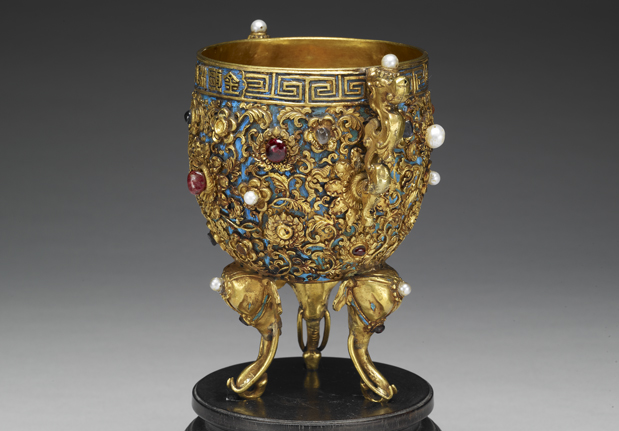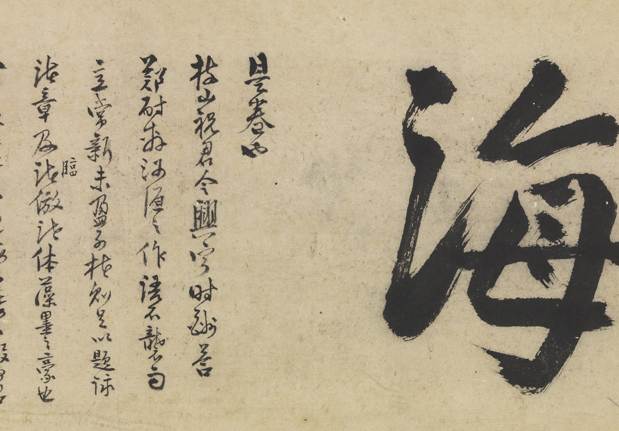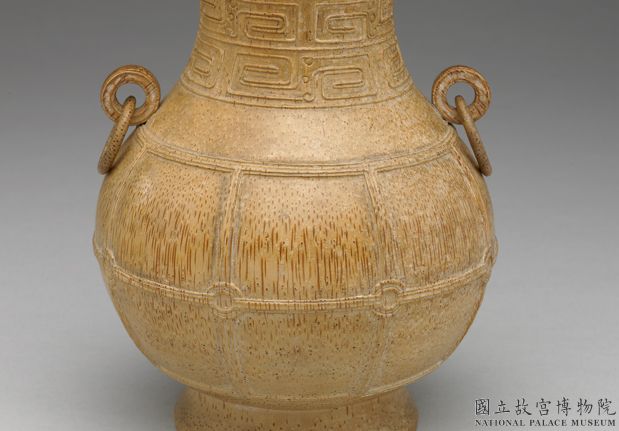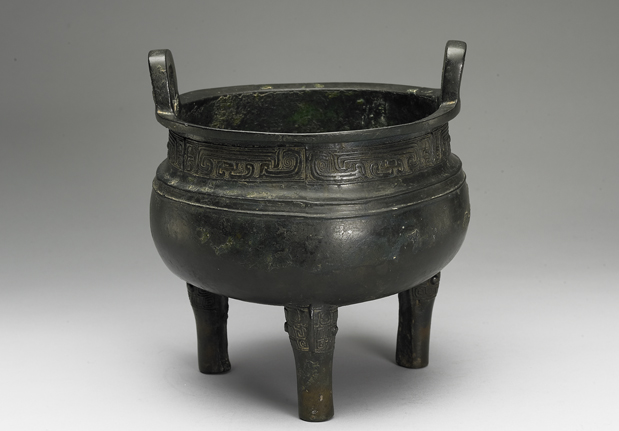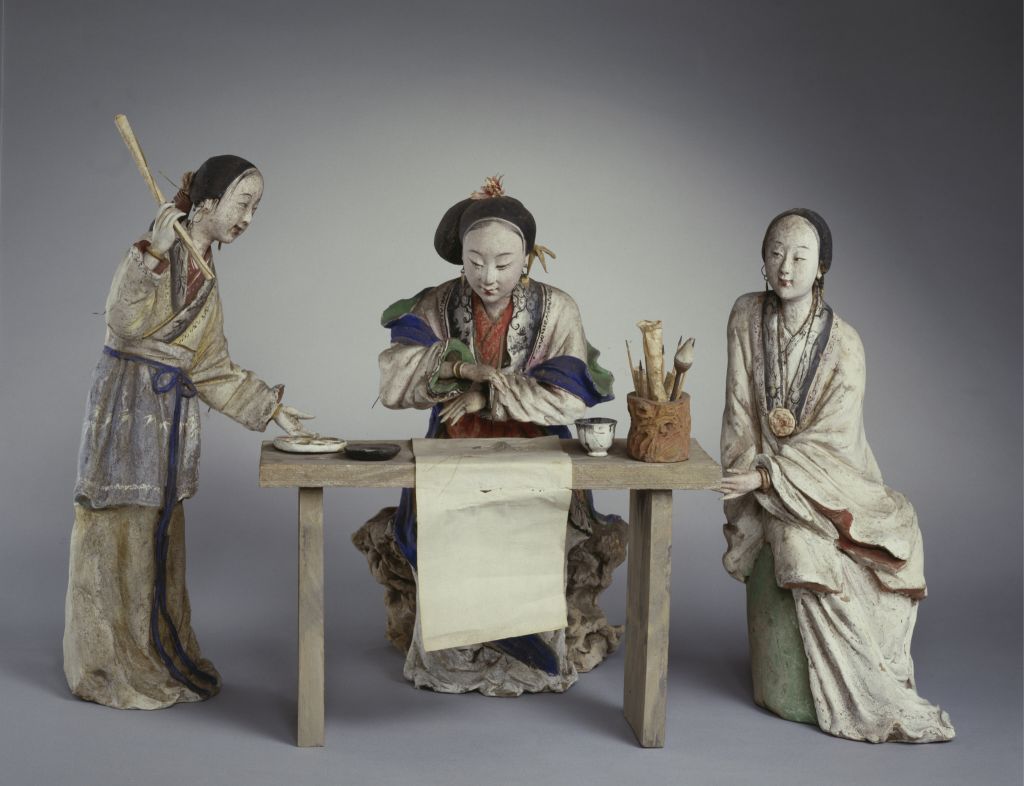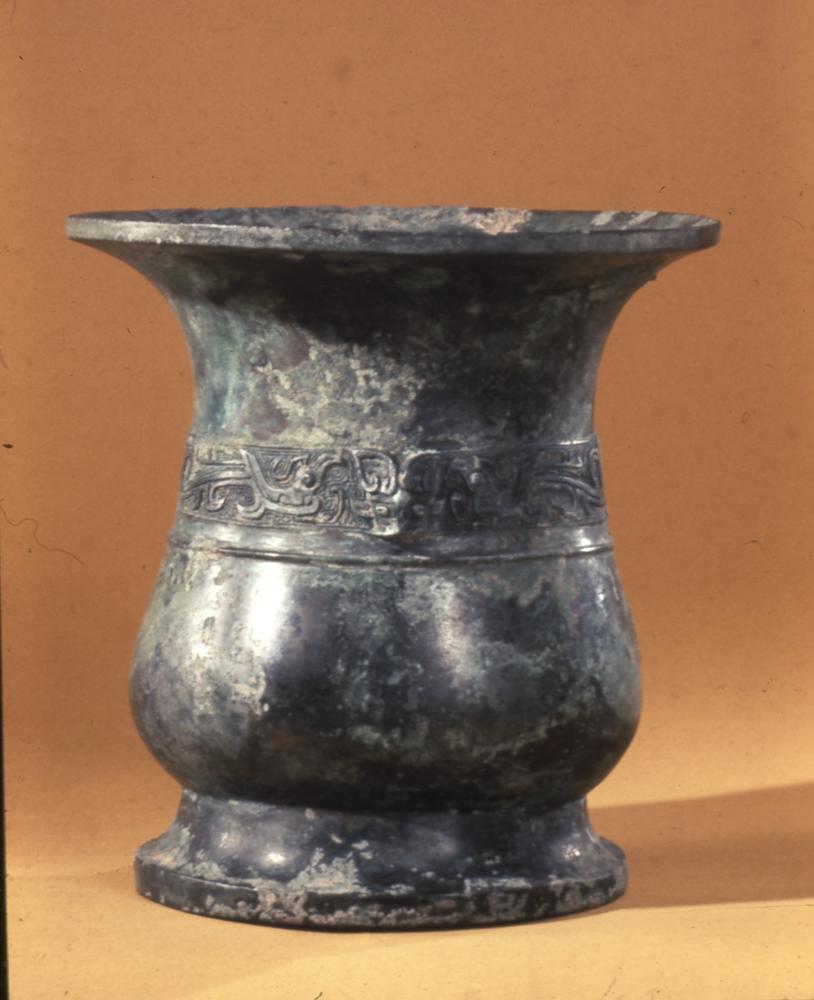[Natural wood-root floating cloud tenon]
bright, 86.5 cm high, 257 cm horizontal, and 320 cm deep
The tenon originally means raft. This tenon is slightly trimmed from a natural elm root to become a seat. On the right side, there are two characters, “Liuyun”, which are engraved in the shade and filled with green seal, with the signature of Zhao Huanguang, and a white seal of “ordinary man”. Five inscriptions of Dong Qichang and Chen Jiru of the Ming Dynasty, Ruan Yuan of the Qing Dynasty, the owner of the half-acre garden and modern Hengyong are engraved on the surface and edge of the Cha
The natural wood-root flowing cloud Cha was originally a relic of Kangduishan, a new town in Yangzhou, in Zhengde of the Ming Dynasty, and was once in the Kangshan Thatched Cottage. In the early years of Qianlong in the Qing Dynasty, Jianghe Pavilion bought its land and bought this Liuyun Cha with thousands of gold. In the 20th year of Daoguang’s reign (1840), this tenon was accidentally discovered by Ruan Yuan. It was covered with dust and insect erosion, and there were damages in between. After being bought back and repaired by Ruan Yuan, it was transferred to his friend Linqing, the governor of the river course (i.e. the owner of the half-acre garden), and shipped back to Beijing, where it was added with a nanmu moire wood seat, placed in his half-acre garden, and included in the “Hongxue Marriage Map” compiled by Linqing himself. In 1958, Wang Heng, the descendant of Lin Qing, repaired and restored it and donated it to the Palace Museum.
![图片[1]-Natural wood-root floating cloud tenon-China Archive](https://chinaarchive.net/Ming dynasty/furniture/8627[1024].jpg)
![槎脚装饰流云纹样 图片[2]-Natural wood-root floating cloud tenon-China Archive](https://chinaarchive.net/Ming dynasty/furniture/8628.jpg) 槎脚装饰流云纹样
槎脚装饰流云纹样![槎上刻麟庆后人王衡永1939年的题识 图片[3]-Natural wood-root floating cloud tenon-China Archive](https://chinaarchive.net/Ming dynasty/furniture/8629[1024].jpg) 槎上刻麟庆后人王衡永1939年的题识
槎上刻麟庆后人王衡永1939年的题识![槎上阮元题赠麟庆的识文 图片[4]-Natural wood-root floating cloud tenon-China Archive](https://chinaarchive.net/Ming dynasty/furniture/8630[1024].jpg) 槎上阮元题赠麟庆的识文
槎上阮元题赠麟庆的识文![槎面董其昌的题记 图片[5]-Natural wood-root floating cloud tenon-China Archive](https://chinaarchive.net/Ming dynasty/furniture/8631[1024].jpg) 槎面董其昌的题记
槎面董其昌的题记![槎上陈继儒的题记 图片[6]-Natural wood-root floating cloud tenon-China Archive](https://chinaarchive.net/Ming dynasty/furniture/8632[1024].jpg) 槎上陈继儒的题记
槎上陈继儒的题记![槎上麟庆于咸丰七年(1857年)的题记 图片[7]-Natural wood-root floating cloud tenon-China Archive](https://chinaarchive.net/Ming dynasty/furniture/8633[1024].jpg) 槎上麟庆于咸丰七年(1857年)的题记
槎上麟庆于咸丰七年(1857年)的题记![槎侧“流云”二字及赵宦光款 图片[8]-Natural wood-root floating cloud tenon-China Archive](https://chinaarchive.net/Ming dynasty/furniture/8634[1024].jpg) 槎侧“流云”二字及赵宦光款
槎侧“流云”二字及赵宦光款
